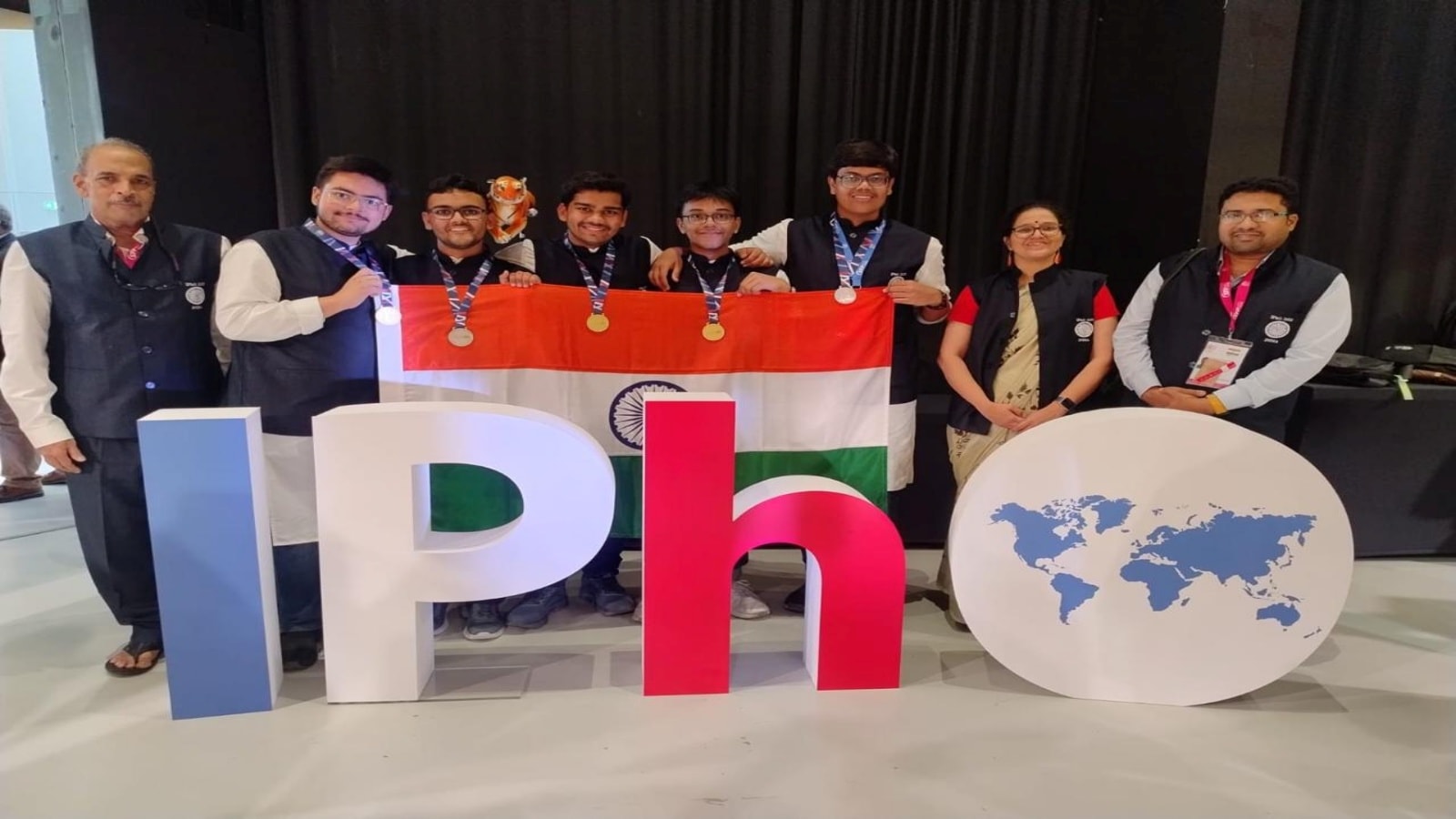For generations, the idea of ageing in India has been tied to the family home, with adult children expected to care for their parents in their later years. The thought of senior citizens living in dedicated retirement communities has often been seen as a departure from familial responsibility and is still met with hesitation. But with lifestyle and perception changes about old age, child-rearing and autonomy, society has made space for these communities to co-exist and thrive.
V Jayanth, a 70-year-old retired journalist, moved into Ziva Retirement Homes in Mamallapuram 10 months ago, after living in Chennai all his life. “Both my children are married, and it took me almost a year to convince them to let me move here,” he says, adding that the property is set along the scenic East Coast Road. “I go for daily walks, exercise in the outdoor gym, get my newspapers and brew my own coffee,” he adds.
Chennai Homes, Illam
| Photo Credit:
Special Arrangement
A recent report by JLL (a global real estate and investment management company Jones Lang LaSalle) and the Association of Senior Living India (ASLI) states that India’s senior living housing sector is projected to skyrocket over 300% by 2030, hitting the $7.7 billion (₹64,500 crore) mark. This upward trend is expected due to a demographic shift in the population.
The senior citizen population is predicted to almost double by 2050, and this will make India home to the world’s second-largest elderly population after China. The most pressing issue is to improve the quality of life and well-being for this growing segment of society, and South Indian cities such as Chennai, Coimbatore, and Bengaluru have emerged as the epicentre of the country’s senior living boom, commanding almost 60% of the market share.
Far from being the last resort, these spaces offer structured support, and a way for elders to lead fulfilling lives on their own terms. Along with providing around-the-clock maintenance care and emergency medical services, these communities host activities ranging from dance classes, game nights, movie nights, and the celebration of festivals, birthdays, and anniversaries.
“We have a poetry club, which was formed by those of us who have either taught English or has studied English literature, and we are 12-15 of us in this. Apart from this there are satsang and bhajan meetups, there’s a bridge club, and so much more happening in the community. You just have to make contact with what interests you,” says Jayanth.

Dance programme at Nana Nani
| Photo Credit:
Special Arrangement
Communities host activities ranging from movie and game nights, to trips to nearby tourist destinations, to even exhibitions and pop-ups set up within the premises. While residents are encouraged to take part in actives and keep busy, they are free to do as they please. “There is a carrom club, some regularly play cards, others go to the library or gym by themselves. This is their home, and they can do what they want to do,” says says Sabitha Muralikrishnan of The Chennai Homes, adding that all residents are required to inform the caretakers if they are stepping out or going out of station, just so everyone is aware of their whereabouts, but there is no restriction of movement.
“In the early stages, it was difficult for us to make people understand that this is not an old age home in the traditional sense. The mindset has changed because these communities cater to more than just security and medical services. They are more like resorts with a social life built into them,” says Umamaheshwari Yuvaraj, joint managing director, Ananya Group, which operates the Nana Nani senior living communities in Coimbatore.

Women celebrating Onam
| Photo Credit:
Special Arrangement
The demographic that seems most at ease with this living arrangement is women since they are freed from obligations like cooking and care taking. “I have observed that women are the most social group on most of our properties, and they are able to be free and social because they are free of responsibilities. Many women have told me that it is freeing to not have to worry if the maid will show up on time,” she laughs. With well-equipped care facilities, curated social activities, and a network of peers, communities like these create an environment where elders can engage meaningfully with their surroundings.
These spaces provide more than just care — they foster independence while ensuring support is always within reach. Rama Swaminathan (84), who has been staying at Puducherry’s Serene Pelican, says that since she moved into the community almost two years ago, she has been able to indulge in her interest in cooking. “I did a diploma in cooking and I enjoy it a lot, but I was a school principal and did not have the time to do it much. Now I cook at leisure, talk to my plants, read books and relax,” she says.
In the Indian landscape, one of the major concerns that arises in assisted living communities is the food. Dietary preferences are nuanced and impacted by beliefs and religion. “We understand that elders have some very specific food preferences. Some don’t consume onions and garlic, and even from the health perspective, a lot of them have needs. We provide customisation of diets and even have doctors who monitor their daily food intake,” says Sabitha Muralikrishnan.
“Every morning after we clock-in, we visit each resident and go through a check-list. Have they had enough sleep, did they face any difficulties during the night, have they taken all their medication on time, did they speak with their family members, these questions are essential because they help us gauge an oncoming emergency,” says Devi, 35, a nurse who has been in the healthcare industry for the last 18 years, and now works with Coimbatore-based CovaiCare.
Beyond daily care, these communities also step in to help with end-of-life care and last rites according to the residents’ customs. “We take care of all the logistics so that the family doesn’t have to worry about them during the grieving period. We have tie-ups with hospitals and mortuaries which will hold the mortal remains until the families arrive in case they are abroad,” says Sabitha.

Inside the gated community of Coimbatore-based Nana Nani
| Photo Credit:
Special Arrangement
While these communities prioritise providing a safe and scenic environment for the retired demographic to take a back seat, Colonel Achal Sridharan, 76, founder of retirement CovaiCare, is of the strong belief that the golden generation belongs right in the cities with all the youngsters instead of on the outskirts. “Retirement communities are the need of the hour because of the longevity of life and the unavailability of facilities for the elderly. These communities provide not just safety, but things like food, housekeeping and more.”
To rebuild a life at a much later stage is definitely a challenge for those who decide to move into these communities, despite the many advantages it provides. “This becomes a large investment at the age of 70. I have to uproot my life and come to some other place and find new surroundings and new people, all for basic facilities. Only 2% of urban senior citizens live in organised senior living communities. So this sector needs to be much more developed and accessible,” he says.
Despite the challenges these communities offer something far more meaningful — a sense of belonging among peers. For 93-year-old G N Rajagopal, finding a fellow retro Hollywood film enthusiast was a delight. “I met Mr K S Nair at the park in our community four and a half years ago, and he was looking at the sky with his big camera. I am also very interested in the sky and planets, so I asked him what he was doing. He showed me the planet Saturn and that’s how we became friends. We later found out that we both love and enjoy ‘50s and ‘60s Hollywood films. He is full of facts and details about all these films,” he says.
In these spaces, companionship replaces isolation, and shared experiences foster newer bonds. Combating loneliness in a community has hence been a central part of the senior living experience. Whether it is a group of retirees debating politics over morning coffee, a book club filled with animated discussions, or an impromptu gathering for festival celebrations, life here is shaped by the people who inhabit it.
Published – March 26, 2025 03:50 pm IST




.jpg)


